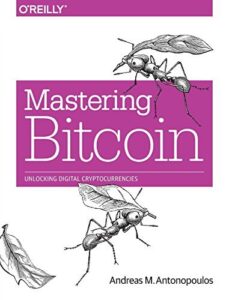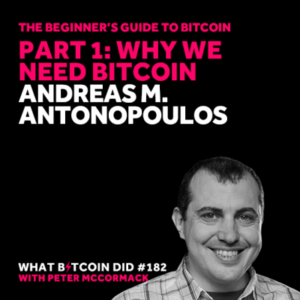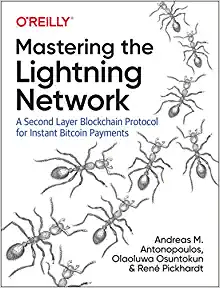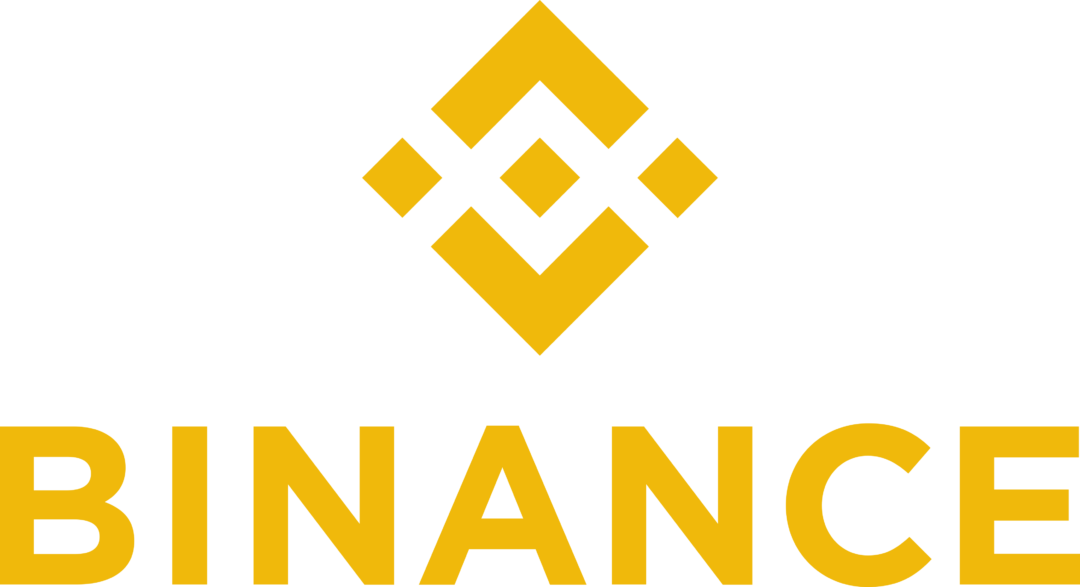Andreas Antonopoulos has been a legendary bitcoin advocate and bitcoin educator since 2012, becoming a very special millionaire. He is also the author of the book Mastering Bitcoin.
He left work to do bitcoin
After studying Informatics and Data Communication and Distributed Systems, Andreas Antonopoulos worked at Nemertes Research, where he was involved in computer security research. He has always argued that overly complex systems are the biggest threat.
In 2012, however, he became a freelance entrepreneur, speaker, teacher and blockchain consultant. In January 2014, he even became the security director of Blockchain.info.
Mastering Bitcoin
A book every bitcoiner needs to know and a blockchain textbook - Mastering Bitcoin with boards on which ants crawl as messengers of distribution and decentralization. Andreas Antonopoulos was so fascinated by Bitcoin that he spent several months studying and programming it intensively until he wrote his first book. They followed The Internet of Money and Mastering Ethereum.

Let's Talk Bitcoin
Andreas hosts the famous cryptopdocast Let's Talk Bitcoin running on a tokenized platform for podcasts, articles and discussion forums. He has recorded almost 500 episodes.

Before the US Senate
Andreas also appeared before the Canadian Senate on bitcoin regulation in 2020 and called for a greater understanding of technology before taking any action. The chairman of the committee called him a "bitcoin guru".
What was he talking about? His speech lasted almost fifteen minutes and he spoke mainly about the benefits of a decentralized financial system. He also warned against applying past regulatory models to a whole new growing cryptocurrency industry.

Despite the speech, however, the narrative of "money for terrorists" and "money laundering" generally continued, in the words of Senator Larry Campbell.
Mastering the Lightning Network
What is Andreas working on now? He writes his next book, Lightning Network, which suggests that he probably believes most in this approach to the problem of scalability. On Amazon you can already make pre-orders.
Lightning Network is one of the more complex and often misunderstood concepts around bitcoin. moreover, there is a strong disagreement in the crypto-community as to whether the solutions of the so-called second layer are really "solutions" or only temporary patches of a much more fundamental problem. However true, the Lightning Network is the best bitcoin has now, and is likely to set a fundamental trend for years to come.

How much will it cost, according to Antonopoulos bitcoin?
A group of Kryptonian enthusiasts at Redditu tried to determine Andreas' prediction according to excerpts from the podcast and on the basis of very inaccurate calculations from the world's money supply. But what is the truth? How much does Andreas think bitcoin will cost?
The truth is much less exciting than we would expect - Andreas Antonopoulos practically never directly provided a price forecast for bitcoin. Probably to keep the image of the educator and to underline the fact that he is a HODLer and that HOLDer will only sell when 1 bitcoin = 1 bitcoin.
"The future of Etherea is much more uncertain than that of Bitcoin"
In an interview with Real Vision, he revealed that it is very difficult to determine Etherea's use-cases, while with Bitcoin the same task is absolutely easy. It was the first interview where he talked more about his opinion on this second largest cryptocurrency according to market capitalization.
According to Andreas, experimentation and frequent hard-forks are not desirable for Bitcoin because they undermine its robust money function.
What is Ethereum? ICO? DeFi? NFT? And that's the problem - Ethereum is everything and nothing.
100 bitcoins
One might think that a person like Andreas Antonopoulos must be a bitcoin millionaire - but the opposite is true (or he denies it for security reasons): in 2013, he was forced to sell bitcoins for rent and family support. We learned this from his response to Roger Vera (Bitcoin Jesus and advocate for 2MB Blocks), who wrote that he would be a millionaire even if he only invested $ 300 in 2012.
When bitcoin was cheap, it simply had no money for investment or a permanent source of income. This is called the so-called bitshaming - A mockery of someone who joined the bitcoin at an early stage but did not become a millionaire as a result. After discussions with Roger in 2017, however, a huge wave of support began. According to Blockchain.info, about 100 bitcoins, traded for $ 17,000 at the time, rushed to Andreas's address in just two days. What and if anything happened to them at all, I'll leave it to you and block explorer.
Anonymity must go to the first layer
Andreas Antonopoulos called long before the ICO feverish in 2017 for the anonymity of bitcoin and the need to put this function on the first tier, but in 2020 he told Cointelegraph that bitcoin would never have such private functions as Monero, the king of privacy coins. This is due to a potential wave of controversy, which he fears, and the structure of bitcoin literally makes the privacy of privacy protocols virtually impossible. If we wanted to make private bitcoin, we would simply create a completely new cryptocurrency. But Taproot and the release of the Schnorr signatures patent mean at least a small shift toward greater privacy on the first layer.
Hybrid bitcoin
Curiosity at the end. Andreas greatly surprised the audience at the Berlin Bitcoin Conference after saying that bitcoin would have a hybrid consensus mechanism. This happened after the infamous block size debate, which divided bitcoin into bitcoin and Bitcoin Cash.
"By probably the end of 2016 Bitcoin will have a hybrid of Proof-of-Work proof of stakeholder system," he said at Youtube. We might think it is inconsistent, but proof of stake meant Lightning Network, because according to Andreas, Lightning Network is practically proof of stake. Why? Because "validators" use their coins to carry out transactions for others for which they charge a small fee. This is a rather ingenious approach.











